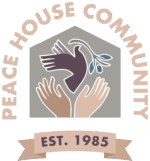
Over the last few years, there has been a movement to stop using the word “homeless” to describe those who don’t have permanent housing. Phrases like “those with lived experience of homelessness” or “the unstably housed” have popped up to fill the void. Those advocating for the change intend to reduce the stigma attached to homelessness by highlighting the difference between the person on the one hand and the place where they sleep on the other.
Although I like reducing the stigma around homelessness, I’m ambivalent about the words we use to talk about homelessness. Reducing stigma is great, but solving the problem rather than renaming it would be better. I’d rather see more focus on providing housing than on vocabulary. But having said that, the stigma that arises from the belief that homelessness results from bad choices and irresponsibility makes it more difficult to generate support for efforts to end homelessness. As long as someone believes that a person becomes homeless through their own actions, they are unlikely to provide any support to ending homelessness. The phrases that are proposed to replace “the homeless” at least try to expand our view of this population. Someone may not have a home now, but that situation doesn’t have to be permanent, and it doesn’t define that individual. Someone may be on the brink of homelessness because of a lost job, an injury, a mental illness, reckless behavior, or something else beyond their control, and may need to stay with friends or family for a time. Yes, bad decisions may have led to unstable housing, but on the other hand, they may be navigating a difficult period in the most responsible way possible.
When I asked some of the community members at Peace House Community how they felt about the new phrases, I expected them to share my view, but I was wrong. They weren’t put off by the phrases, but they also didn’t mind being called “homeless”. To them, the attitude of the speaker was more important than the words they used. They have experienced hostility, concern, and any number of other responses from both politically correct individuals and those who use the pejorative phrases. Sometimes those who show the most concern do so because they think those without homes are too incompetent to take care of themselves and need to be saved. Sometimes those who don’t offer any help do so because they believe “the homeless” know how to survive difficult situations, and they don’t want to insult someone by assuming they aren’t competent to take care of themselves. The words used weren’t the important thing; the willingness to engage with a homeless individual according to their needs and wishes matters more.
by Marti Maltby, Director Peace House Community – A Place to Belong
This article originally appeared in “The Alley,” the newspaper for the Phillips neighborhood of Minneapolis.
